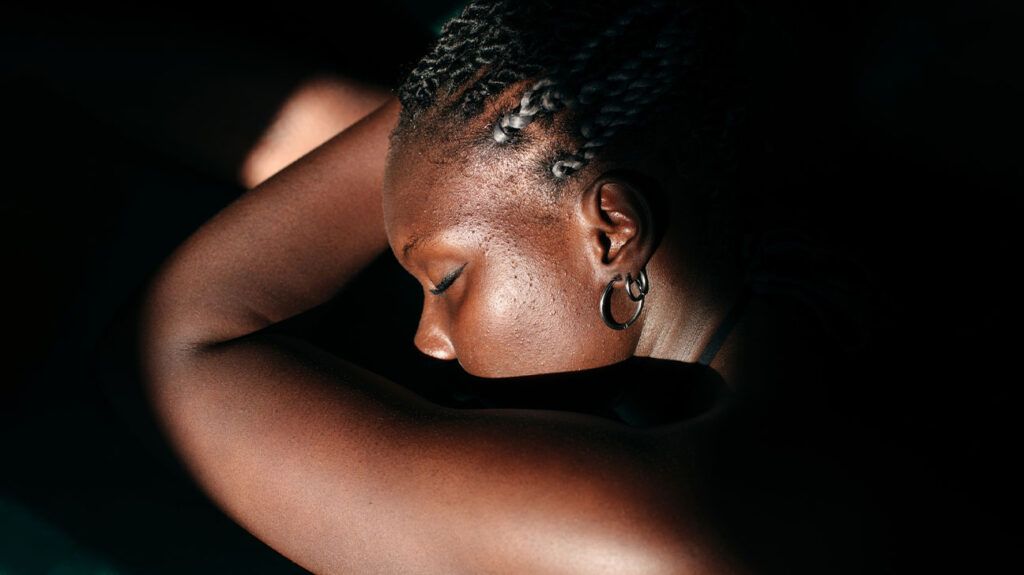
- About 900 million people globally have a skin disease at any given time.
- Many skin conditions can be painful or chronically itchy, causing discomfort.
- Researchers at the EADV Congress 2023 report that 42% of people around the world with skin disease experience sleep disturbances.
- Scientists found these sleep disturbances had far-reaching implications for a person’s overall life, including work productivity and daytime fatigue.
Researchers estimate that about
There are more than 3,000 known skin diseases. Some of the most common types of skin conditions include acne, contact dermatitis, psoriasis, rosacea, and atopic dermatitis, also known as eczema.
Depending on the type and severity of the skin condition, many can impact a person’s life by causing
Now, a team of researchers recently presented a study at the European Academy of Dermatology and Venereology (EADV) Congress 2023 stating that 42% of people around the world with skin disease experience sleep disturbances with potential implications on their overall quality of life.
The findings haven’t been published yet in a peer-reviewed journal.
The research results were taken from a comprehensive international research initiative called the ALL PROJECT, which analyzed information from more than 17,000 adults in 20 countries to assess the impact of skin diseases.
When examining the data, the research team reported that 42% of respondents with skin disease experienced sleep disturbances. The main symptoms impacting respondents’ sleep were itching (60%) and burning sensations or tingling (17%).
Scientists found these sleep disturbances have broader implications on everyday life. For example, 49% of respondents reported reduced productivity at work, compared to 19% of respondents without a skin disease.
Additionally, respondents with skin disease were more likely to experience fatigue as soon as they wake from sleep, periods of drowsiness during the day, tingling sensations in their eyes, and repeated yawning than respondents who did not have a skin disease.
“Moving forward, healthcare providers should be encouraged to integrate sleep disturbance questions into the examinations of patients with skin conditions to foster a more comprehensive understanding of the impact of skin diseases,” said Dr. Bruno Halioua, a dermatologist in private practice in Paris, France, and one of the authors of the study.
“Ultimately, the ALL PROJECT aims to spotlight the impact of skin diseases and associated patient experiences so we can mitigate these adverse effects and improve the quality of life for patients,” he told Medical News Today.
This is not the first study to tie sleep disturbances to skin conditions such as eczema.
A study published in November 2021 reported a high prevalence of sleep disorders in people with skin disorders, which many times lead to reduced daytime performance, impaired sleep among the patients’ relatives, and increased use of substances.
A
Additionally,, another
In addition, the types of medications a person is taking for a skin disease may also impact their sleep. A
After reviewing this study, Dr. Alexis Young, a dermatologist with Hackensack University Medical Center in New Jersey, told Medical News Today the research results were not surprising.
“I was not surprised. Itch sensation is carried by the same nerve fiber as pain and as such, can be incredibly disruptive to a patient dealing with a skin disease — like atopic dermatitis — both during the day and at night,” Young explained. “Itch is always worse at night when we have fewer distractions than during the day.”
As a dermatologist who focuses on severe atopic dermatitis, Dr. Peter Lio, clinical assistant professor of dermatology and pediatrics at Northwestern University Feinberg School of Medicine in Illinois and founding director of the Chicago Integrative Eczema Center, told Medical News Today that almost all of his patients report a significant impact on their sleep.
“Most skin problems are associated with some symptoms, such as itch, stinging, and discomfort, and that can certainly affect sleep,” said Lio. “Additionally, there’s a great deal of psychological stress that comes with skin disorders, and it is not surprising that perhaps, even in the absence of symptoms, sleep disturbance can be found.”
Medical News Today also spoke with Dr. Benjamin Ungar, an assistant professor in the Department of Dermatology and director of the Alopecia Center of Excellence at Mount Sinai in New York, about this study.
Ungar said the findings can help reinforce to doctors that successful treatment of skin disease is holistic, in which improvement is seen beyond just skin manifestations.
“Asking patients about sleep disturbance and educating them that it is an important part of their disease can help to lead to better outcomes by ensuring that it is addressed with treatment,” he noted.
Young agreed.
“While these findings are not surprising, I do think they are incredibly important because they actually measure the detrimental impact on daily activities caused by sleep disruption from skin disease,” she said. “These findings, including loss of productivity in the workplace due to fatigue, decreased concentration, etc. may help with future drug research and innovation, drug approval as well as insurance coverage for these drugs.”
As for the next steps in this research, Ungar said he would like to see research dig further into the relationship “to understand which skin diseases have the biggest impact, which sociodemographic factors contribute to increased risk for sleep disorders, and to evaluate how treatments can lead to better outcomes.”
Lio added researchers need to continue to explore these patient-reported outcomes, such as sleep in other skin diseases beyond atopic dermatitis and psoriasis.
“While we have made impressive progress in those conditions, we need to continue to apply it to other diseases, including those less common,” he said.